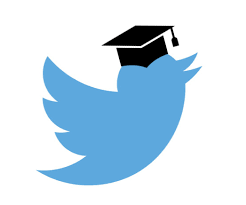More on openness in digital education

Now that I have started the Tweetorials, I have had a few more thoughts about Open Education in general.
One thing that has struck me is that a lot of the research and information that I found on the internet about MOOCs and Open Badges is already over 5 years old, which is digital terms is a long time. I expected that websites would still be updated and current, yet a number of them didn’t seem to have changed since 2013/2014. The information about ds106 seemed so fresh and new, and then I discovered it dated back to 2013. Is it still functioning? It advocated social learning, open to anyone (no log-in button), no discussion board communication, rather a #ds106 hashtag in Twitter. All the concepts that research has shown underpins successful open education.
Much more than a course, ds106 is an experiment in the shape and potential of open education. (https://er.educause.edu/articles/2013/1/ds106-not-a-course-not-like-any-mooc)
Yet that is dated 2013.
After some digital digging, I discovered that the #ds106 hashtag has morphed into #ds106 Daily Create, developed as part of the ds106 open course on digital storytelling and is now a community of people producing art daily on Twitter. I haven’t yet discovered whether the course still runs.
The P2PU badge is another example of this apparent out-dating. A great example of social-learning with a real emphasis on the importance meaningful relationships within education, yet apparently also not updated since 2013.
Is this simply because 2010-2015 were important years in the development of open education, and we have adopted those strategies and not needed to improve or change them, therefore they are still current? Or have we moved on to something else? Or are we about to?
I also had the sense that what used to be ‘free’ has since become costed. This was backed up by this report by Class Central that I found, whereby it states that by 2015, paid certificates had replaced free ones in most courses.
In the Financial Times today, there is an interesting article about the University of the People providing accessible MBAs. A timely example of open education in 2021.
When I talk to our students, in the first term what they hate most is peer-to-peer learning — they say ‘who are you to give me grades?’” says Shai Reshef, the educational entrepreneur who founded UoPeople. “By the second year, they rank that as the best thing. You need to master the material, to interact and to accept criticism. That’s the 21st-century workplace. (Financial Times 20.03.21)
MOOCs and Open Badge courses require a sign-in, and are arguably therefore not truly open. It struck me that there are now other informal ways of education that are very much in use now. Such as using Twitter.
 This week, I found that using Twitter, as a ‘tweetorial’ to answer questions about data was a really ‘open’ way of educating. It was a blend of synchronous and asynchronous communication. Our comments had to be short and sweet, and therefore punchy. It gave an immediacy to the debate. This is ultimately what we are now programmed to expect in our world of smart phones and instant gratification. I enjoyed posting tweets that were read and re-tweeted in minutes; it felt like a new definition of a learning space.
This week, I found that using Twitter, as a ‘tweetorial’ to answer questions about data was a really ‘open’ way of educating. It was a blend of synchronous and asynchronous communication. Our comments had to be short and sweet, and therefore punchy. It gave an immediacy to the debate. This is ultimately what we are now programmed to expect in our world of smart phones and instant gratification. I enjoyed posting tweets that were read and re-tweeted in minutes; it felt like a new definition of a learning space.
It was so ‘open’ that personal friends, who did not know I was tweeting because I was taking part in #Mscidel discussion form, started taking part in the discussion through their own tweets. Could this be further exploited to the benefit of education? The speed of Twitter dissemination of information leads to new insights and understandings and the real-time aspect of the debate kept it much fresher and more interesting.
In our fast-paced world, Twitter has the allure of allowing us speedy access to information and also the opinions of others. I acknowledge that this can be dangerously mis-used, leading to misrepresentation of the truth, defamatory comments, even to the point of inciting violence and societal unrest (The storming of the Capitol in January 2021 is a mind-blowing example of the dangerous potency of Twitter and social media missuse).
There is also the probability of the machine learning ‘hypernudge technologies’ (Knox et al.) kicking in and directing the path of the learning. Would Twitter as a learning platform end up being shaped and conditioned by machine learning technologies? (Knox et al.) Or is it already?
This blog on the dangers of Twitter, albeit written in 2013, reminds us that Twitter is a ‘mixed blessing’, and as long as it is considered not as an end to itself, but as a means to an end, it can be an influential way of sharing and debating.




Yep, datedness can be an issue. However, #ds106 is still going (search the hashtag on Twitter for example) as a course and a community and as a radio show! P2PU badges may well have pretty much died although P2PU is still very much active as a peer learning platform. That report from Class Central is a good find – I had no idea so many free certificates were still available – although certificates like the ones from Google will still have a commercial imperative. The UoP is a really interesting challenge to higher education institutions but that form of openness also involves a significant transformation of the idea of higher education including a shift away from students being taught by leading researchers in the field.
I enjoy the whole tweetorial thing – although, again, is it fully open as it requires users to contribute their data to the platform? but is is particularly good when people external to the group start contributing – including authors of the articles under discussion.
the dangers of Twitter are important as you say. Is this part of the case for critical digital literacies to be included in school curriculum to surface the role of algorithms and filter bubbles ?